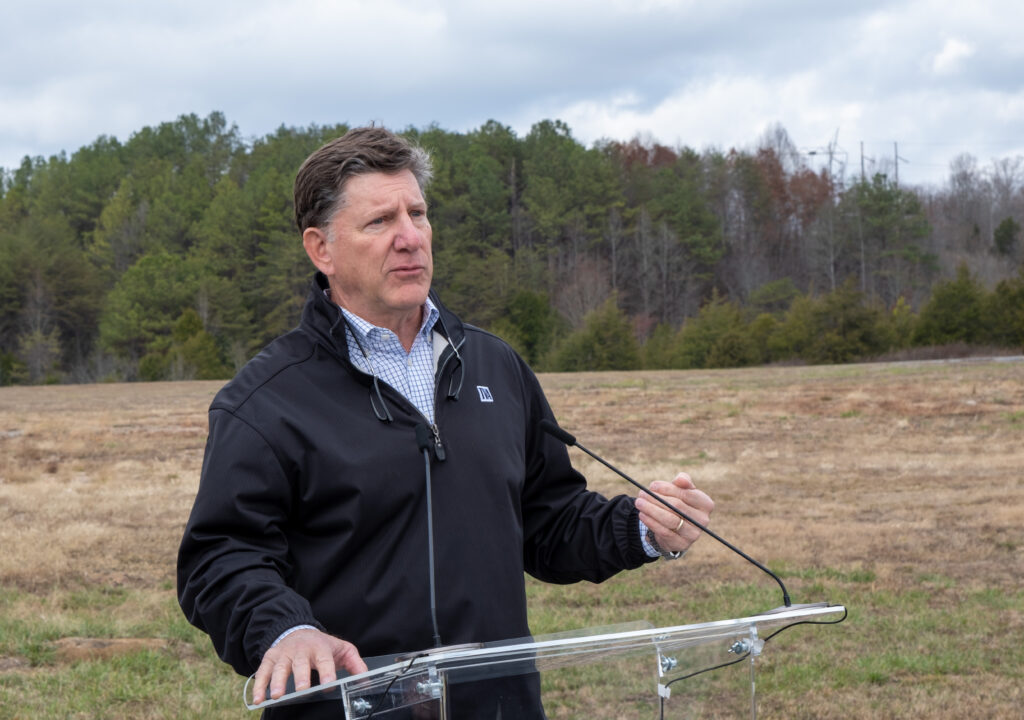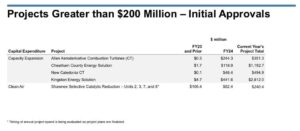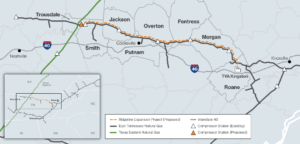
The Tennessee Valley Authority formally announced last week its intention to build a methane gas plant in Kingston.
The decision — which would involve building a 122-mile pipeline across six counties in Tennessee — was made solely by CEO Jeff Lyash without public approval from TVA’s board.
“TVA is a monopoly utility that operates essentially unregulated,” said Maggie Shober, the research director at the Southern Alliance for Clean Energy. “The level of transparency on who is making what decision and when is appalling.”
The gas plant and pipeline will have serious consequences for the climate but also the people in the Tennessee Valley. Gas pipelines carry risks of explosions, and pollution from gas plants is linked to premature death. The plant will be located in a community that has already long suffered from the Kingston coal plant and its infamous coal ash spill in 2008. There are also significant financial risks for the 10 million people indirectly paying TVA through their monthly bills.
This was the second time that a decision on a gas plant was made by Lyash alone.
How Lyash got power from the TVA Board, again
But to figure out how we got to this point, we need to take a step back.
The Tennessee Valley Authority is not like other utilities in the nation.
TVA is owned by the federal government. It is regulated by a board with nine members nominated by U.S. presidents and approved by Congress. The TVA Board of Directors is tasked with ensuring that the utility follows all federal laws.
To make big decisions, like when and how to build new power plants or solar farms, TVA historically only needed approval from the board.
In November 2021, however, that changed. The TVA board had seven members, two with terms about to expire and all appointed by former President Donald Trump. They passed a resolution to delegate decision-making authority on the Cumberland and Kingston projects to Lyash.
Lyash later explained the resolution was passed so the board would not lose a quorum. But this explanation did not add up for everyone at the time: Biden had already nominated four people to the board, which was technically not at risk for losing a quorum of five people for another 13 months. Energy watchdogs suggested that the board’s resolution was “an overt attempt to undermine the power” of any incoming Biden nominees who may be in favor of renewable energy.
The board ultimately remained short-staffed for about two years, until six Biden nominees were confirmed by Congress in December 2022. Lyash used his authority to approve the Cumberland project the following month.
In May 2023, the fully-staffed board voted to retake any future decision-making authority on the Kingston project.
But just three months later, the board reversed the decision again during the next quarterly board meeting on Aug. 24. The board passed a resolution to give the power back to Lyash again, along with a rate increase for a $15 billion budget without knowing how all of the money would be spent.
“The TVA Board delegating the decision to Lyash is a way for a Biden-appointed Board to get out of voting one way or another on fossil fuel infrastructure. It’s a cop-out,” Shober said. “The TVA Board, and thus the Biden administration, is 100% responsible for this decision.”
TVA accused of ‘lack of transparency’
This next part is hard to understand, but these details help illuminate an example of how TVA withholds information from the public when making decisions that affect millions of people.
In this case, the decision to greenlight the Kingston project was made, effectively, privately. The text of the resolution passed during the August 2023 board meeting was not publicly stated or shared during that meeting. (TVA does not publish resolutions until three months later at the next board meeting, when they post the “minutes” from previous board meetings.)
By passing the resolution in August, the board delegated decision-making authority to Lyash on Kingston and three other gas projects — because their budgets for 2024 were “approved” by the board, according to the resolution, which references a memo that was not public until a FOIA request was obtained and shared with WPLN.
In the memo, TVA lists four methane gas projects with “initial approvals” for spending in fiscal year 2024 — in Kingston, Cheatham County and Memphis, and in Mississippi. None of the other three projects have completed environmental reviews yet.
 Courtesy Tennessee Valley Authority
Courtesy Tennessee Valley Authority A FOIA request for this memo was submitted in October 2023 and returned in late March 2024, a week before the decision on the Kingston plant was made by the Tennessee Valley Authority’s CEO.
Lyash also made the decision a week after EPA warned that the environmental review for the Kingston project was incomplete, essentially, with a “lack of transparency.” EPA requested that TVA create a supplemental environmental review, but the federal utility ignored that request.
“It’s confusing and disheartening that the TVA board continues to reject its responsibility for the biggest and most consequential decisions,” Tom Cormons, the executive director of environmental group Appalachian Voices, said in an email. “It’s especially concerning that they gave up their decision-making power without clearly informing the public.”
The TVA board could still halt the Kingston project even though Lyash issued a record of decision, given that EPA said that by building a gas plant the utility could be breaking its federal mandate for “least-cost planning.” The board did not directly respond to an earlier request for an interview.
Or, President Biden could take action.
Who wins with this decision?
TVA executives like Lyash, who made $10.5 million last year, have financial motives to build gas plants because of TVA’s bonus system. TVA has previously denied this as motivation for decisions.
There is also the pipeline company. TVA set up an agreement with Enbridge three years ago for the Kingston project, which will involve a 122-mile pipeline across six counties in Tennessee. Enbridge makes billions every year selling gas on their pipelines.
 Courtesy Enbridge
Courtesy Enbridge The Tennessee Valley Authority has approved a methane project that would include a 122-mile pipeline.

